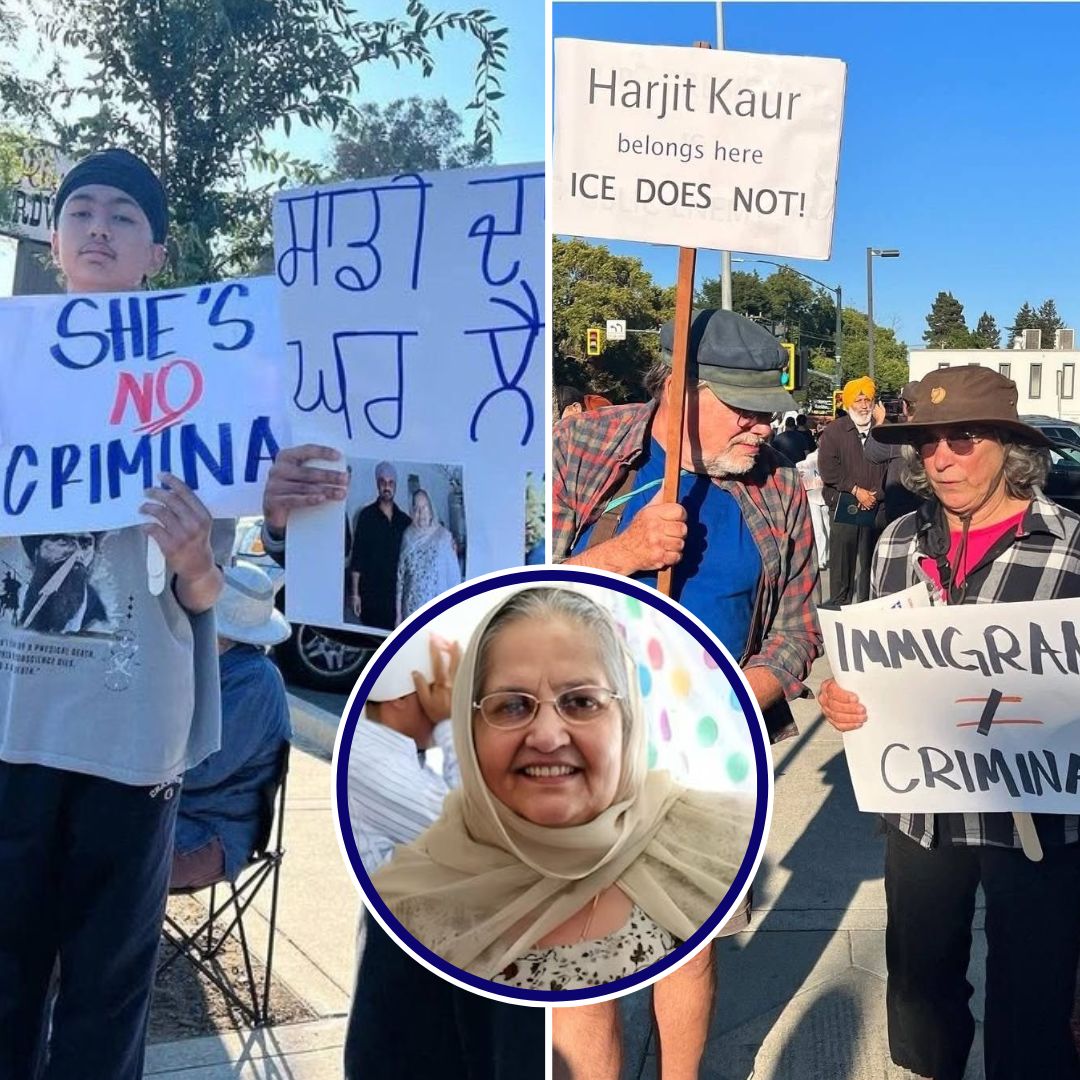Harjit Kaur, a 73-year-old Sikh grandmother who lived in the United States for over three decades, was recently deported to India by U.S. Immigration and Customs Enforcement (ICE), stirring deep outrage and protest from her community and advocates.
Kaur, who originally arrived in the US in 1991 as a single mother fleeing political turmoil in Punjab, had worked legally for many years, regularly checked in with ICE, and paid taxes, yet was detained abruptly during a routine check-in in September 2025.
Despite her compliance with immigration regulations, she was detained without warning, denied access to basic necessities, and reportedly treated harshly during the detention process. Her family and community members in California rallied in protest, holding placards demanding her release and respectful treatment.
Cruel Conditions and Denied Dignity
Deepak Ahluwalia, Harjit Kaur’s attorney, exposed in multiple statements the harsh and inhumane conditions she faced during detention and deportation. He described how Kaur, despite having double knee replacement surgery, was denied a bed and forced to sleep on a cold concrete floor with only a thin blanket for nearly 70 hours. Ahluwalia recounted that she repeatedly asked for food or water to take her essential medication, but was instead given a plate of ice.
When she explained she could not eat the ice because she had dentures, a guard callously told her, “That’s your fault.” She was also handed only a cheese sandwich once and was denied a proper vegetarian meal that adhered to her Sikh faith for the first six days. Additionally, she was not allowed to shower during the entire detention and was only given wet wipes to freshen up right before boarding the deportation flight.
Ahluwalia stressed that such treatment was unacceptable for a 73-year-old woman with no criminal history and highlighted that the family’s reasonable requests for her to be allowed to say goodbye to relatives or travel on a commercial flight were denied. These appalling details form part of a wider pattern seen in many deportations, drawing public and legal scrutiny.
A Prolonged Legal and Emotional Struggle
Harjit Kaur had applied for asylum multiple times, with the final denial coming in 2012. Since then, she faithfully complied with ICE requirements, checking in every six months and renewing her work permit annually, while awaiting travel documents from the Indian consulate, a process that took over a decade without success. Despite her long-standing compliance, ICE moved quickly to detain and deport her without granting the family’s reasonable requests for a commercial flight and time to say farewell.
ICE defended its actions by stating that Kaur had exhausted all legal remedies, including multiple appeals up to the Ninth Circuit Court of Appeals, and that it was enforcing the law and judicial orders. However, immigration advocates, community members, and some US lawmakers condemned the deportation as inhumane, pointing to a pattern of harsh treatment especially of vulnerable immigrants under the current administration.
The case also draws attention to a recent rise in deportations of Indian nationals, many returned under similarly contentious circumstances.
The Logical Indian’s Perspective
Harjit Kaur’s case spotlights a critical tension in immigration policy between legal enforcement and fundamental human dignity. The Logical Indian asserts that upholding laws cannot come at the cost of empathy, especially towards elderly, long-term residents who have built lives, contributed to society, and adhered to rules. Effective immigration reform must integrate compassion and respect for human rights, balancing security with care for individuals’ well-being.
Harjit Kaur’s distressing experience should prompt policymakers and society alike to rethink how vulnerable migrants are treated, ensuring their dignity is preserved. Readers are invited to reflect on how immigration systems might evolve to be more humane without compromising necessary legal frameworks, fostering a society rooted in kindness and respect.
In East Bay, California, U.S. Immigration and Customs Enforcement (ICE) has detained 73-year-old Harjit Kaur, a development that has sparked strong protests from the Sikh and immigrant community. Supporters argue that although ICE claims she was living in the U.S. illegally, she… pic.twitter.com/5AkY8gdFeP
— Gagandeep Singh (@Gagan4344) September 15, 2025












